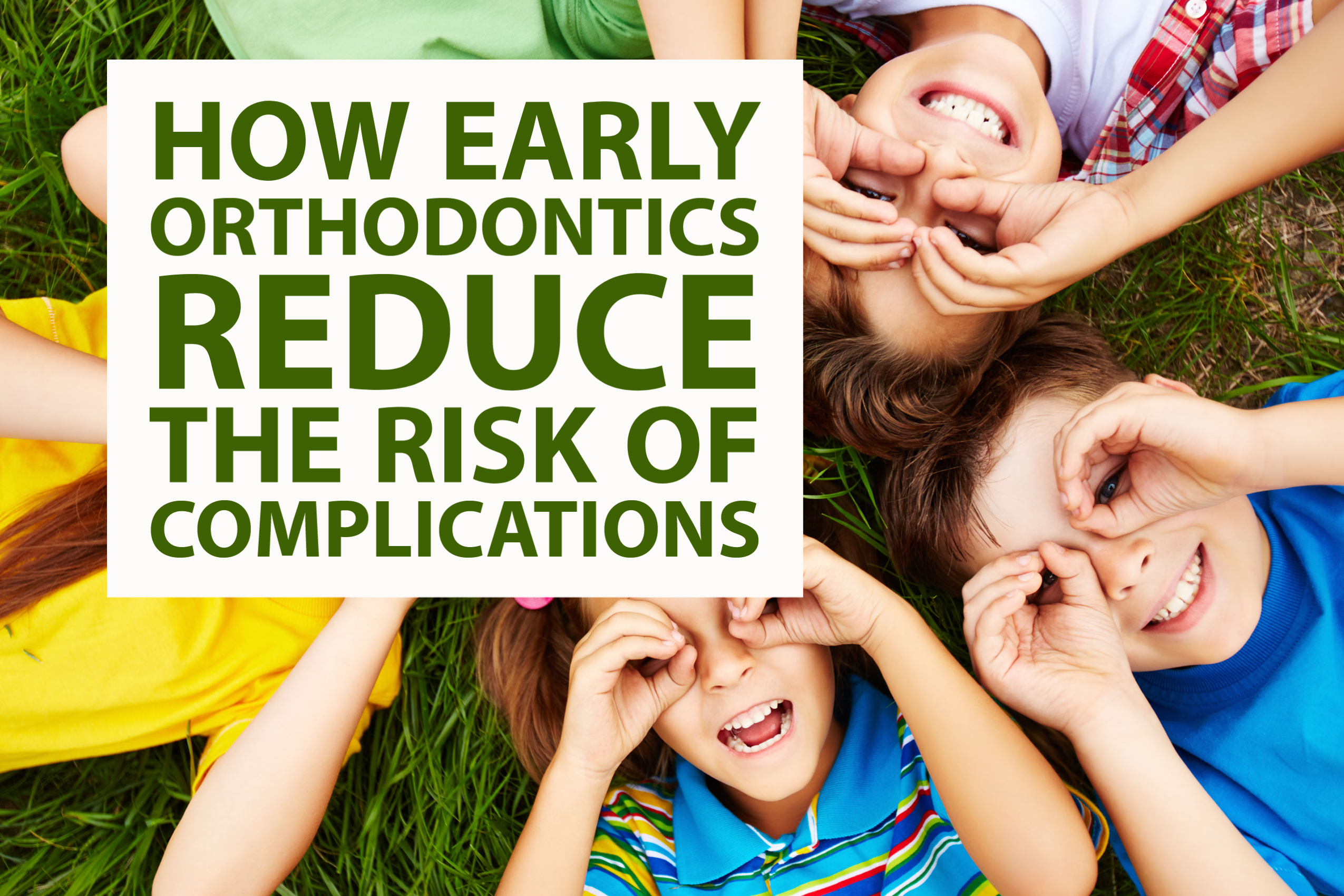How Early Orthodontics Reduce the Risk of Complications
Posted on August 16, 2021
Orthodontic treatment has many benefits that positively impact our overall quality of life. The physical, mental, and social advantages of an early intervention often outweigh any shortcomings. The American Association of Orthodontists reports that there are approximately 4 million people wearing braces today.
Orthodontists advise taking your child for a checkup by age seven. The following are some of the benefits of early intervention.
Remove Teeth to Prevent Impaction
As teeth emerge, complications could affect the underlying dental structure. Before braces treatment, an orthodontist may suggest an extraction to facilitate a smooth recovery.
When there are several teeth involved, an orthodontist may propose a combination of extractions and braces. Sometimes the procedure may require a palatal expander to create space for teeth to grow normally.
When the tooth is impacted, it can make chewing uncomfortable and even painful. Early intervention can detect such problems and address the impaction before it starts an infection or malocclusions.
Address Crowding and Shortage of Space
Crowding or the excessive lack of space in the mouth due to missing teeth and/or an overly closed bite is one of the most common orthodontic problems out there. This condition typically affects young people, as it’s caused by improper development of their jaws at a young age (typically due to a lack of space for proper growth). As this issue gets worse with time, normally, only orthodontic treatment can treat this problem.
A crossbite is an orthodontics condition where the front teeth fit into the lower teeth. In such situations, an orthodontist may recommend a braces procedure to stop a lopsided jaw growth. Unless there is early interceptive treatment, it will deteriorate the enamel, increasing the risk of cavities.
Since their jaws are still growing, children are more responsive to orthodontics. So, it is always advisable to visit an orthodontist whenever you detect symptoms of oral health problems.
Address Childhood Habits That Affect Oral Health
Several factors may trigger the unhealthy growth of teeth and jaw in children. Some childhood habits may force teeth to move from their natural position.
For example, thumb sucking applies uneven pressure, which often leads to crooked teeth. Also, teeth grinding wears down the enamel and encourages the gums to recede.
Early diagnosis enables the timely detection of dental complications. Additionally, an orthodontist can guide parents on how to address childhood habits to minimize oral health risks.
Orthodontics Treatments for Enhanced Oral Health
After a braces procedure, it is vital to maintain oral hygiene to stop bacteria buildup in the mouth. But oral hygiene can be a challenge for children and teens.
An orthodontist may include fluoride treatments depending on the diagnosis. The application can prevent demineralization of the enamel. Dental professionals can also guide parents on how to sustain oral hygiene as young patients recover.
Early Treatment Can Address Psychological and Social Issues
Teeth misalignments and other oral health conditions can have significant psychological and social implications. Studies show that young patients are conscious of the teasing they may get due to the appearance of their teeth.
Crooked teeth and malocclusions can diminish their self-esteem, especially when interacting with peers. Early intervention reduces the risk of further complications and helps patients address their oral health issues.
Braces can correct malocclusions, crooked teeth, and other health conditions. Taking your child to an orthodontist for a checkup reduces the risk of costly complications. You can talk to our friendly and cheerful staff at Spokane orthodontics to book an appointment today.



